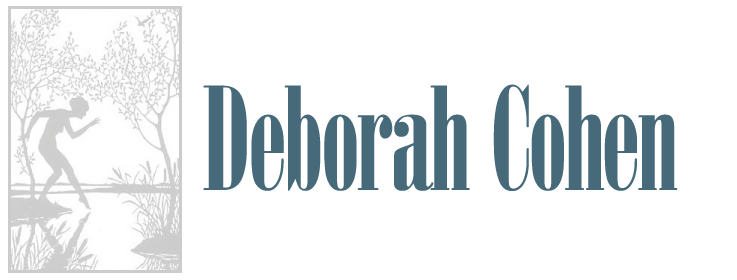Review in the Daily Telegraph
The Daily Telegraph
Frances Wilson
A “rigorous exploration of what people over the past 200 years have been determined not to reveal.”
‘Ours is an age,” said Stephen Spender, “where many people feel a need to confess the tensions of their inner lives.” So much so that bookshops groan beneath the weight of publications promising to reveal the author’s secrets, while television schedules are packed with programmes inviting us to reflect on the inner lives of the nation. Whatever happened to British reserve? This is the question asked by Deborah Cohen in her rigorous exploration of what people over the past 200 years have been determined not to reveal. Family Secrets is the shameful history of how we have covered up our shameful histories.
Ours is also an age in which a premium is placed on privacy. Until recently, secrecy and privacy had the same meaning – Dr Johnson’s dictionary defined “privacy” as the “state of being secret” and secrecy as “privacy; the state of being hidden” – but by the mid-20th century it was understood that leading a private life and leading a secret life described two separate things. Through previously unpublished letters, law reports and institutional archives, Cohen explores when and how this shift in meaning took place. She concludes that there is nothing paradoxical about a tell-all culture in which private life is respected: privacy is the right to be left alone without shame.
Secrecy, however, is tied up with class: like keeping a servant, keeping a secret had once been a way to define the bourgeoisie. Working- and upper-class families were less concerned with what the neighbours thought about their unmarried daughter giving birth, their bachelor uncle wearing make-up or the unexplained arrival of a dark-skinned infant on their doorstep. It is with the secret babies born to the mistresses of 19th-century British East Indiamen that Family Secrets begins. Separated from their Indian mothers – women who stood for “all of the secrets men made in Empire, and all of the shadows that threatened imperial families from afar” – to be shipped to their father’s families in England, mixed-race children inhabited the corners of other people’s lives. In one letter, an aunt frets about the appearance of dark down on her niece’s upper lip.
The most surprising chapter is the one in which Cohen explores family shame around mentally handicapped offspring. The Victorians, it seems, were less likely to hide the birth of an “imbecile” from friends and neighbours than the Edwardians, who believed that the existence of a retarded child reflected on their morality. Focusing on archives relating to Normansfield, an institution for the “mentally subnormal” founded in 1868 by John Langdon Down (who gave his name to Down’s syndrome) and inherited in 1896 by his son, Reginald Langdon Down, Cohen contrasts the lives of two girls, Lucy, who was admitted in the 1870s, and Elizabeth, admitted in the Twenties. While John Langdon Down had promised “to open out fresh realms of happiness for a class that have the strongest claims on our sympathy”, Reginald assumed, when he informed a parent of the death of their daughter, that “it will be a great relief to you to know that Winifred is at rest, especially as her life would never be a very great boon to her”. By an astonishing coincidence, Reginald himself became, in 1905, the father to a Down’s syndrome child, who was never referred to outside the family.
The final section of the book shifts from stories of families who kept secrets and people who were secrets to an exploration of the family and secrecy since the Sixties. This is where Cohen gets into her stride. Separating the secret from the private lay at the heart of the anti-family theories of R D Laing while Edmund Leach condemned the modern family for, in a phrase that embedded itself in the national psyche, “its narrow privacy and tawdry secrets”.
Ironically, it is by uncovering the “tawdry secrets” of our ancestors that the “majesty of the family”, as Cohen puts it, has been restored. Ours is an age of genealogy: witness the success of websites such as ancestry.co.uk, which attracts subscribers by asking “who knows what amazing family secrets you’ll discover with a 14-day free trial”. One in six people who have researched their heritage have discovered something a previous generation sought to hide, Cohen writes. It is not our own inner tensions we now compulsively confess, but those of our forebears.
